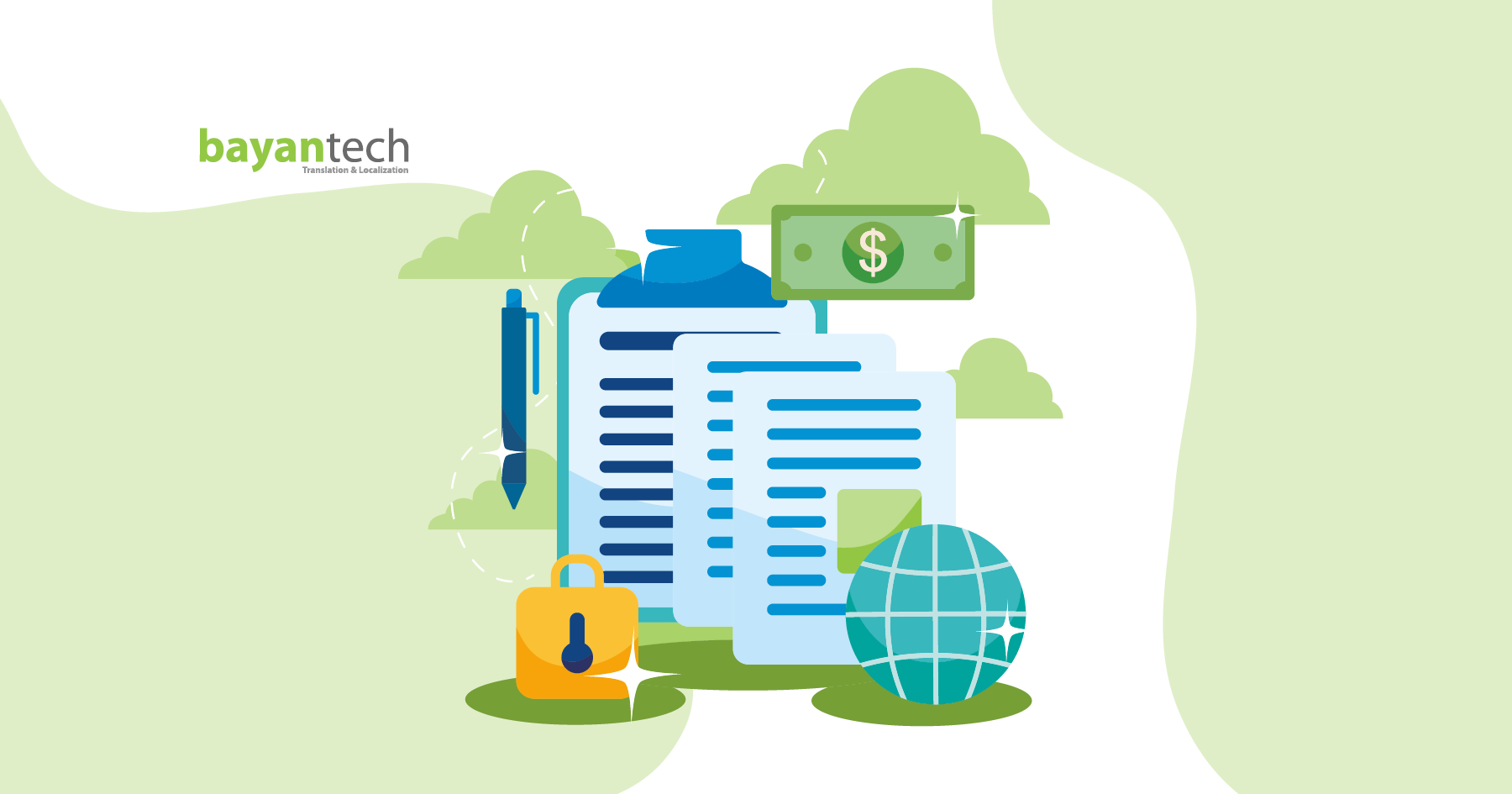Transcription services can be a good investment for businesses. Whether for marketing purposes or internal communication, transcripts can ensure better brand visibility and operational efficiency.
But, like most services, the question of cost is bound to come up.
“How much does transcription cost?” is frequently asked, and the answer is not always straightforward.
But while transcription rates vary, it doesn’t have to break your budget.
Understanding what affects transcription pricing can help you make a more informed decision and ensure you’re getting the best value for your money.
In this blog post, you’ll learn how transcription fees are calculated, the market’s average rate, and the factors that can impact the final price. So, let’s get started!
How Much Does Transcription Cost?
It can be challenging to calculate the cost of transcription services. Plus, various factors can influence the final price.
So, let’s start with a quick overview of the four most common pricing structures and the average rates in the market.
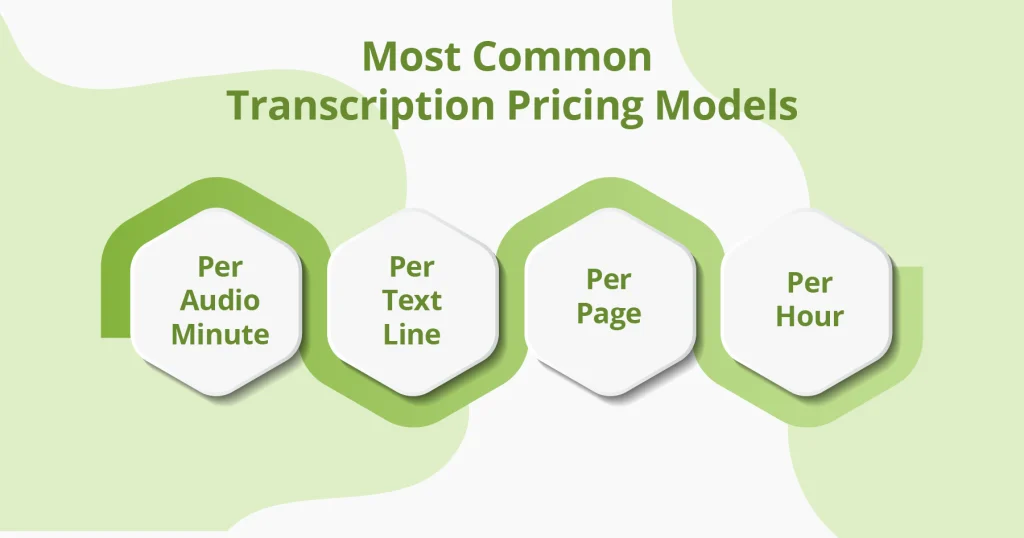
- Per Audio Minute
This is the most common pricing model for transcription services. And in this case, you will be charged per minute for transcriptions of your audio or video file.
The transcription rates per audio minute are a good option since you will know how much you will be charged upfront.
| Transcription rates per minute range from $1 to $3. |
reference:
For audios that involve multiple speakers, transcription rates range from $2.50 to $5.00, with the cost rising as the number of speakers increases.
(Keep reading to learn more about the factors that impact rates!)
- Per Line
With the per-line pricing model, you will be charged per each text line of transcription produced.
A text line is typically defined as 65 characters including spaces. This is usually around 12 to 14 words in total.
Usually, per-line rates work best for shorter transcripts with fewer than 500-1000 lines while a per-page or per-hour rate may be better in terms of cost for longer transcripts.
- Per Page
Per page is also a common pricing model that works best for shorter transcripts, especially those under 10-20 pages.
A standard page is typically assumed to contain 300-350 words. And don’t worry because all transcription service providers often specify the assumed word count per page in their pricing.
- Per Hour
Another straightforward pricing model is per-hour pricing, where transcription services charge based on each hour of audio or video transcribed.
This method allows you to easily estimate the base cost for a given amount of transcription time.
On average, transcription rates per hour range from $25 to $50, though some projects may cost as much as $100 per hour.
Transcription Pricing Calculator
If you want the most accurate estimates for your upcoming transcription project, you can use our online calculator. It’s free and easy.
All you need to do is fill out this form and you’ll get an estimate of how much the project is likely to cost, within a few minutes.
5 Factors That Influence Transcription Costs
Here are five major factors that can influence the final price professional transcription services will charge you.
1. Audio Quality
The quality of audio files is one of the first factors that can have an impact on transcription pricing.
If an audio file has poor quality like noise in the background, it’s more difficult and time-consuming for a transcriptionist to produce accurate transcripts.
Plus, poor audio quality requires specialized equipment or software to enhance the audio quality, leading to higher transcription costs
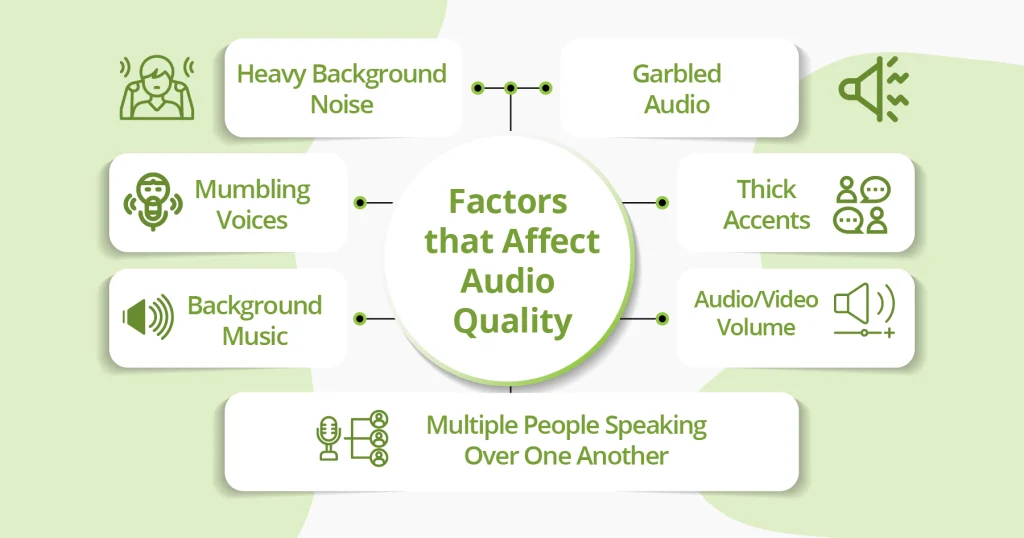
2. Turnaround Time
Requesting a rush deadline, like same-day or next-day delivery, typically costs more due to the need to prioritize your project and allocate extra resources.
In contrast, longer turnaround times are often less expensive, as transcriptionists have more flexibility and less urgency to complete the work.
3. Human vs Machine Generated
Transcription methods can also affect transcription costs (and quality!)
Human-generated transcription is typically more expensive but offers unmatched accuracy, as it involves a skilled transcriptionist listening to the audio and carefully transcribing the content.
In contrast, machine-generated transcription uses ASR (automated speech recognition) software for a faster, more affordable solution. But it often lacks the precision businesses need.
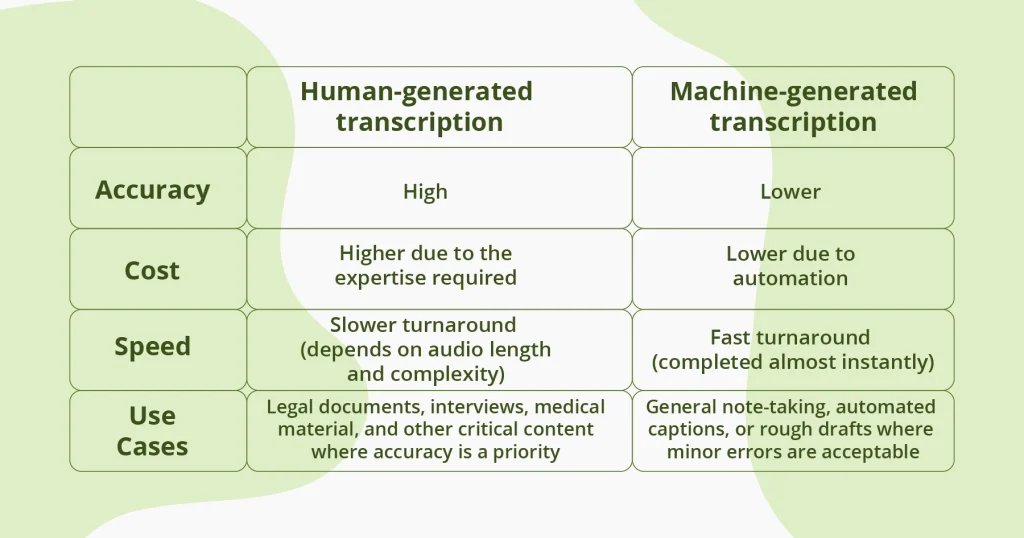
So, how do you choose between the two?
For domains where accuracy is critical, like legal or medical fields, human transcription is the safest choice.
But what if you’re facing budget constraints or tight deadlines? Then, you might want to adopt a balanced approach and work with a professional agency that combines machine transcription with human proofreading.
This approach will ensure error-free, high-quality results while keeping costs under control.
4. Type of Transcription Service
The type of transcription service you need also determines transcription costs.
There are different types of transcription to choose from: verbatim transcription, edited transcription, or intelligent verbatim transcription.
Each service offers a different level of detail and requires varying amounts of time and effort. Here’s how they differ:
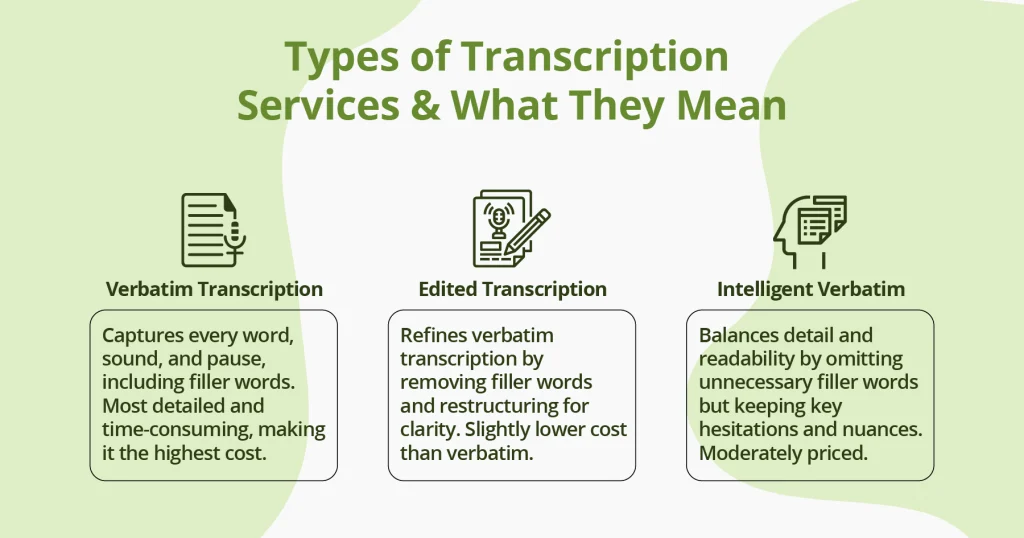
5. Subject Matter
Transcribing technical materials, such as scientific, medical, or engineering content, often requires a transcriptionist with specialized expertise in the subject matter.
For example, medical transcription services typically cost more than standard interview transcription because they require an in-depth understanding of medical terminology.
This added expertise can increase the overall cost due to the complexity and knowledge required for such projects.
| Are You Looking for MT Post-Editing Services? Need Help Calculating Rates? We created this client’s guide just for you and your partners. |
bayantech: High-Quality Transcriptions in Any Language
Searching for reliable and budget-friendly transcription services? Look no further!
With nearly two decades of experience, bayantech provides transcription services in a wide range of industries. So far, we’ve handled a wide variety of transcription projects, from patient records to court proceedings.
Our team of language professionals guarantees that your translation project will meet (and exceed) your expectations.
8 Steps Every Medical Interpreter Takes
Looking for a medical interpreter? Discover the career path of medical interpreters and qualifications they need to acquire to take on interpreting jobs.

